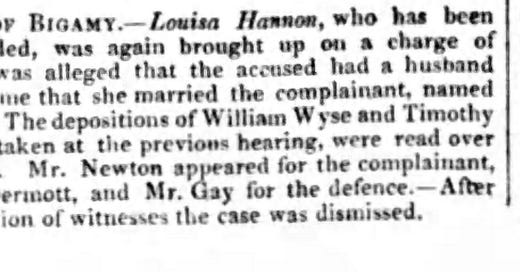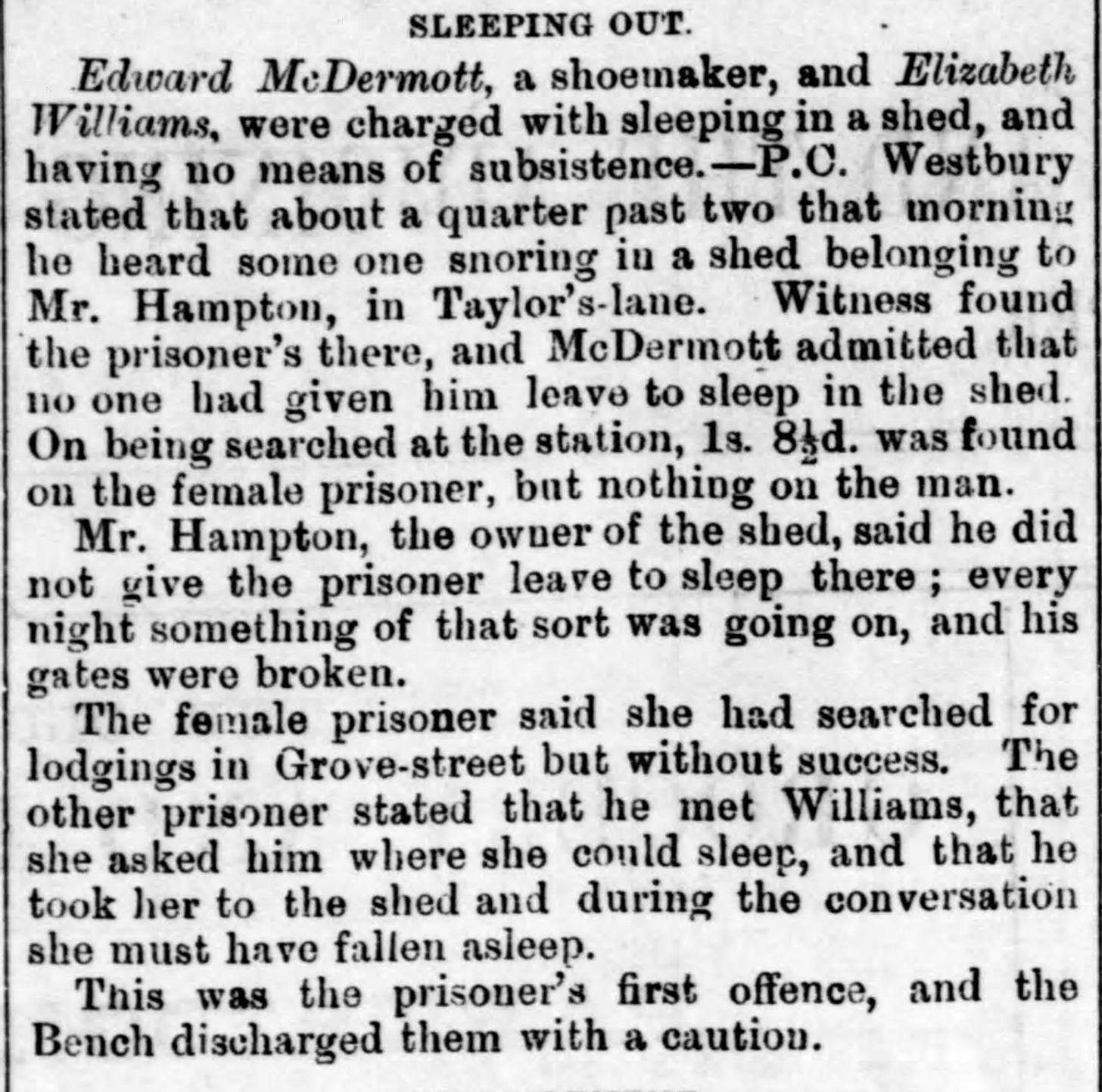Storyteller Challenge: Rowdy Renegade
The story begins in Co. Roscommon, Ireland, in the Catholic family of Bernard McDermott. The young Edward–perhaps more rowdy than renegade–turned his back on his home country and emigrated to England, like many before and after him. He arrived in Cheltenham and married Mary McDonnough sometime before their first daughter was born: Mary Ann.
You might remember Mary Ann from my first post for Storyteller Challenge. She was the one arrested for being drunk and disorderly whose husband tried to spring her from the police house, only for them both to end up in gaol. It seems that Mary Ann was following in her parent’s footsteps.
Cheltenham’s population grew very fast, moving from a small market down with just over 300 houses, to a popular spa. The population growth peaked around the time Edward arrived with many others, looking for employment. The Irish–not a large percentage in comparison with Liverpool or London–were divided into two distinct groups: the (largely protestant) gentry, and the working or “lower” classes, of which many were paupers, who were mostly Catholic.
The McDermott couple were convicted of assault in 1834 and sentenced to two months in Northleach, although it is unlikely they actually went to gaol. Mary had stabbed a man and “in the opinion of the surgical gentleman who attended the wounded man, it was almost miraculous that the wound had not proved fatal.” A report in the Gloucestershire Chronicle states they were “held to bail to keep the peace for six months”, but a paper on the Irish in Cheltenham by Peter Clifford says they were (possibly instead) removed to Ireland, with their two young daughters, Mary Ann and Ellen.
A Drop too Much
Two years later, they were back in Cheltenham and the family grew to include five daughters. Edward was back in court in 1836, “charged with striking his wife several severe blows on the head, and otherwise maltreating her”. He was fined one shilling and discharged because Mary would not give evidence against him. The newspaper article states that “in his defence, he said, his wife was in the frequent habit of getting a drop too much, and he did not know what to do with her.” So he beat her. She died at the age of 34 after giving birth to five daughters.
In the 1841 census, Edward gives his occupation as a “cordwainer”, otherwise known as a cobbler or shoemaker. He remained in Cheltenham, opened a shop in the High Street and apparently achieved some measure of respectability, despite his violent past.
A Spouse too Many
Edward was born a Catholic, but somewhere along the line he converted to Protestantism. After his first wife, Mary, died in 1839, he married Louise Conway in a Church of England church in 1843. Two years later, Edward was informed that Louise had a still-living husband at the time of her marriage to him and accused her of bigamy before the court. Edward’s brother Timothy (also a shoemaker) testified to knowing her in 1841 by her previous married name, Hannon, when she used to frequent the Dolphin Inn in Cheltenham with her husband Thomas. Hannon subsequently left for Ireland and she went to live in London. However, the case was dismissed. By the time the 1851 census was taken, he had a new wife: Charlotte, who he had planned on marrying in 1843 before marrying Louisa–the marriage banns were even read–and actually married her in August 1844. Perhaps the bigamy accusation was an attempt to get rid of Louisa and marry Charlotte. Complicated.
The local papers are full of McDermotts drunk and disorderly convictions. One of the most often seen was Deborah, the wife of James McDermott (also a shoemaker, and son of Edward’s brother Timothy). James and Deborah were also charged with being drunk and disorderly together, but she often was charged alone, one time saying she had fallen off the wagon after being “a teatotaller for a year and nine months, but had broken out.”
Caught Snoring in a Shed
The last newspaper article features an Edward who is 72, bankrupt, and found sleeping in a shed with another woman. They were charged with having no means of subsistence. “P.C. Westbury stated that about a quarter past two that morning he heard some one snoring in a shed belonging to Mr. Hampton in Taylor’s Lane.” Hampton said he had not allowed them to sleep there, and “every night something of that sort was going on, and his gates were broken.” The couple were discharged with a caution, it being their “first offence”. Possibly Edward was not homeless but just drunk and offered a homeless woman a place to sleep in the hope of bedding her, who knows. In any case, in the 1881 census he is apparently living with his unmarried daughter Catherine and her illegitmate daughter, Florence. He died at the age of 83 in December 1889.
This post is a response to a challenge by . Every week the Storyteller’s Challenge prompts family historians to write a short post. This time the challenge was to write about one of our ancestors who broke the rules, the law, the tradition or the mould and did something shady, outlandish, surprising or different.
References:
Clifford P: “Ilegant Natives of Erin”. The Irish in Cheltenham 1801-1861, May 2024, https://www.google.com/url?sa=t&source=web&rct=j&opi=89978449&url=https://glosdocs.org.uk/sites/ind/clifford/irish_in_cheltenham.pdf
Cheltenham Chronicle, 3 Nov 1836; 20 Mar - 10 Apr 1845; 2 and 9 Jan 1877; 12 Aug 1879
Gloucestershire Echo, 25 Feb 1884






Wow! 😲